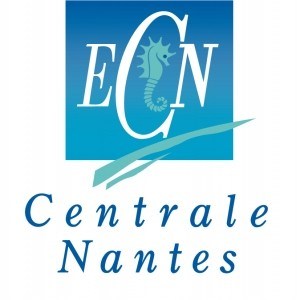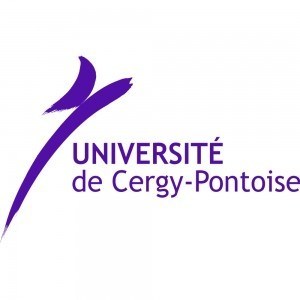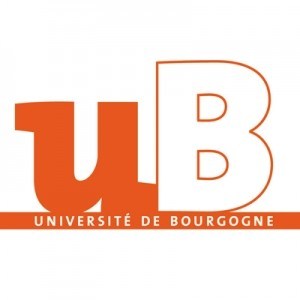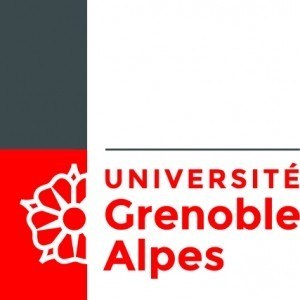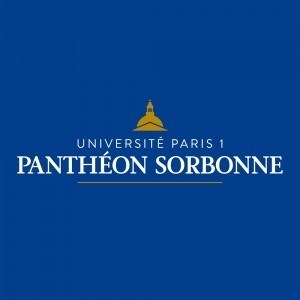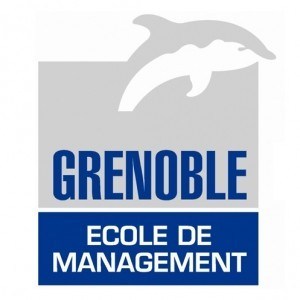Photos of university
The Finance programme at Toulouse Business School offers students a comprehensive and in-depth understanding of the fundamental principles and advanced practices of finance in the global economy. Designed for ambitious individuals seeking to develop a solid foundation in financial analysis, investment management, corporate finance, and financial markets, this programme equips students with the skills necessary to excel in diverse financial roles across various industries. Throughout the course, students will explore key topics such as financial accounting, risk management, financial modeling, valuation techniques, and ethical considerations in finance. The curriculum combines rigorous academic coursework with practical applications, including case studies, simulations, and internships, fostering analytical thinking and decision-making abilities. Students will learn to evaluate financial statements, assess investment opportunities, and develop strategic financial plans, preparing them for careers in banking, asset management, corporate finance departments, consulting, and financial advisory services. Toulouse Business School emphasizes a global perspective, encouraging students to understand financial systems and regulations in different countries while promoting multicultural teamwork and communication skills. The programme also offers opportunities for specialization in areas like sustainable finance, fintech, and international finance, allowing students to tailor their education to their career aspirations. With experienced faculty, modern facilities, and strong industry connections, the Finance programme at Toulouse Business School prepares graduates to meet the challenges of the rapidly evolving financial landscape. International mobility options and professional development workshops further enhance student experience, making this programme an excellent choice for those aiming to become financial experts and leaders in an interconnected world.
1ST SEMESTER (JANUARY-JUNE)
Common subjects
Focused on developing an understanding of the complexity of business and general management.
The Business Plan: The capacity to identify and develop a business opportunity is an essential skill for any manager. This subject provides the technical tools to succeed in this task, with special emphasis on the financial and accounting aspects.
Company Strategy: How management can make a business profitable. Understanding the competitive environment (markets, competitors, etc.), utilising internal resources and capabilities and determining strategies based on this knowledge to create a business advantage.
International Business: The tools to understand how different regional business environments operate from multiple perspectives (economic, legal, cultural, social), and methods for discovering the options available to businesses to help them thrive in these environments.
System Dynamics: Organizations are complex and changing systems. This subject develops the ability to analyse any type of organization from a systems perspective and propose the necessary adjustments to improve the workings of processes, flows and exchanges.
Human Resources: Understanding management of the potential of people and talent within organizations, and how to harness that potential in a way that is synergistic to company development. How an organizational culture is developed and the relationships between this, leadership and individual and collective performance
Core subjects in Finance
In-depth study of the world of finance. The focus in this period is predominantly academic, dedicated to the study of models, approaches and techniques concerning the different elements of accounting and finance, with concepts illustrated through application, intensive use of IT tools and a solid command of mathematics.
These subjects are grouped in three units:
Corporate finance and business value:
This unit covers the set of tools needed to devise and implement financial strategies, manage finance departments and monitor the profitability of a business. It begins with an introduction to the basics of finance anddevelops on these themes. Secondly, it provides insight into different methods of covering financial risk, especially those relating to foreign exchange. Finally, it provides instruction in the tools required to analyse a company and its competitive environment and to assess and manage its value.
Capital markets and business value:
This unit concerns a variety of pricing models for derivative products widely used in business to cover financial risks. It also covers the analysis of debt securities, which are the major source of business financing, as well as the instruments and tools used to manage interest rate risk. Techniques for cash management and the development of financial models for the implementation of financial decisions are also discussed.
Relevant topics in corporate finance:
Includes models used to develop a greater understanding of advanced corporate finance, in theory and practice:taxation and commercial law, capital investment markets and tools, structured finance techniques for optimal management of asset purchase or export financing. Also covers international accounting standards and the skills required for effective assessment of business value.
Business game
At the end of the first semester, students are divided into teams to compete with each other as if they were different companies in the same industry. Added complexity comes from the fact that competing teams may be in Barcelona or on the main campus in Toulouse.
2ND SEMESTER (SEPTEMBER-DECEMBER)
Strategy intensive
An intensive strategy course that involves revisiting concepts from the first year, developing and applying them to the resolution of highly complex real business cases.
Professional Options
The program offers two professional options: Management Control and Financial Management.
In contrast to the first semester of common and core subjects, the approach here is strongly focussed on professional tools. Many of the teachers are active professionals who can draw upon significant expertise and illustrate typical professional situations that are likely to be encountered.
OP Financial Management
Current economic instability around the world, the shrinking of margins due to hyper-competitive markets and the volatility of financial markets make it more necessary than ever for financial managers to be aware of howfinancial management decisions can affect the success of any business.
The increasing complexity of business and financial environments means there is a consistently high demand for qualified personnel in the area of corporate finance and financial management. Financial systems and thestrategies of financial services firms are currently in a phase of fundamental realignment and long-term change.The strategic priority of banks and companies has moved away from growth itself to place greater emphasis on profitability, performance and value creation for shareholders. The increasing economic significance of the financial sector draws attention to the fact that bankers, financial managers, regulators and consultants musthave a clear understanding of theory and practice relating to management accounting, banking and corporate finance. Companies basically face two broad financial questions: What investments should the company make and how to pay for them? The first question involves spending money, the second, how to get it.
The OP Financial Management is oriented toward answering the many questions facing financial managers and bankers. It is designed to prepare finance professionals with a strong background in analytical decision-makingand practices. This is a profile increasingly sought after by multinational corporations and financial institutions(banks, investment funds, pension funds, insurance companies, auditing or consulting firms, as well as the financial management departments of companies around the world). More specifically, the OP Financial Management develops tools that allow the student to:
- Analyse and solve complex financial problems;
- Formulate alternative strategies;
- Be aware of the implications of different strategic options;
- Understand the willingness of different stakeholder groups;
- Develop greater knowledge of corporate finance and financial management;
- Acquire professional competence in terms of initiative, autonomy and communication.
Current economic instability around the world, the shrinking of margins due to hyper-competitive markets and the volatility of financial markets make it more necessary than ever for financial managers to be aware of howfinancial management decisions can affect the success of any business.
The increasing complexity of business and financial environments means there is a consistently high demand for qualified personnel in the area of corporate finance and financial management. Financial systems and thestrategies of financial services firms are currently in a phase of fundamental realignment and long-term change.The strategic priority of banks and companies has moved away from growth itself to place greater emphasis on profitability, performance and value creation for shareholders. The increasing economic significance of the financial sector draws attention to the fact that bankers, financial managers, regulators and consultants musthave a clear understanding of theory and practice relating to management accounting, banking and corporate finance. Companies basically face two broad financial questions: What investments should the company make and how to pay for them? The first question involves spending money, the second, how to get it.
The OP Financial Management is oriented toward answering the many questions facing financial managers and bankers. It is designed to prepare finance professionals with a strong background in analytical decision-makingand practices. This is a profile increasingly sought after by multinational corporations and financial institutions(banks, investment funds, pension funds, insurance companies, auditing or consulting firms, as well as the financial management departments of companies around the world). More specifically, the OP Financial Management develops tools that allow the student to:
- Analyse and solve complex financial problems;
- Formulate alternative strategies;
- Be aware of the implications of different strategic options;
- Understand the willingness of different stakeholder groups;
- Develop greater knowledge of corporate finance and financial management;
- Acquire professional competence in terms of initiative, autonomy and communication.
OP Management Control and Governance
The OP Management Control and Governance prepares students for positions such as financial controller,internal auditor or consultant. Potentially acting as guarantors of the veracity of financial data, partners and advisors to operations managers or agents of change, these professionals must have extensive knowledge in their fields as well as the broad know-how and skills to tackle the various facets of their responsibilities, and a keen understanding of the strategic commitments of a business.
This OP is part of the KPMG lecture series on strategic management planning in SMEs. In this program studentsundertake a field study to analyse the performance management practices of SMEs, in effect, strategic dashboards. These projects are tutored by a representative of KPMG Middle Market France and an award is presented for the best fieldwork project.
SESAME
A consulting project performed in teams, often interdisciplinary, comprising the strategic assessment of a real company and the proposal of strategic recommendations. This is an exciting practical activity that implies the application of all competences developed throughout the program.
3RD SEMESTER (JANUARY-JUNE)
Professional Project or professional practice
Students complete a full-time placement in business, where they work on a project in keeping with their chosen professional option. At its end, they must present a professional thesis based on the experience in front of a judging panel.
With the Career Starter, TBS Barcelona ensures individual and continuous monitoring for students and assistance in selecting a placement that matches their OP, helping to define a professional profile highly valued by employers. Placements can be completed in Spain or abroad.
Any student who has a business plan they wish to put into practice may submit it to the school and if approvedit can be validated as a professional project. The project will have the full support of the teachers and the CareerStarter for its launch. The student will be required to submit a final report.
Prerequisites for the Finance program at Toulouse Business School typically include a strong academic background in mathematics, economics, and business-related subjects. Prospective students are generally expected to have completed secondary education with excellent grades, particularly in quantitative subjects. Prior proficiency in English is required, often demonstrated through standardized tests such as IELTS or TOEFL, given the program's instruction language.
Applicants usually need to submit a completed application form, academic transcripts, a motivation letter explaining their interest in finance and career goals, and a recent CV. Some programs may require or prefer applicants to have relevant work experience in finance or related fields, although this is not always mandatory for undergraduate entry and more relevant for postgraduate levels.
For international students, additional documentation such as a copy of their passport, proof of English language proficiency, and sometimes a visa application are necessary. The admission process may also include an interview, either in person or online, to assess the candidate’s motivation, communication skills, and suitability for the program.
Specific entry criteria may vary depending on the applicant's country of origin and the level of study (Bachelor’s or Master's). For example, for the Master's in Finance, candidates typically need a bachelor’s degree in finance, economics, business administration, or a related discipline, with a competitive GPA. Some courses may also look for relevant quantitative coursework or work experience to gauge analytical skills and practical understanding.
Once admitted, students are expected to meet ongoing academic requirements, such as maintaining a minimum GPA, participating in internships or practical projects, and sometimes completing additional language modules if necessary. The program may also have prerequisites for certain elective courses, which could include prior knowledge of accounting, statistics, or financial modeling.
Students are encouraged to review the specific entry requirements listed on the official Toulouse Business School website for the relevant academic year, as criteria can evolve. Overall, the program aims to attract motivated individuals with strong analytical capabilities, a passion for finance, and a clear career direction within the financial sector.
The financing studies at Toulouse Business School for the Finance program are designed to provide students with comprehensive knowledge and practical skills in managing financial resources, investment strategies, and financial planning. The program includes courses in corporate finance, financial markets, investment analysis, risk management, and financial instruments, among others. Students benefit from state-of-the-art teaching methods, including case studies, simulations, and internships, which enhance their understanding of real-world financial issues and equip them with applicable skills. Toulouse Business School also offers various financial aid options, including scholarships, grants, and student loans, to support students throughout their studies. The school collaborates with financial institutions and industry professionals to ensure that the curriculum remains aligned with current market trends and employer needs, facilitating better career prospects for graduates. Additionally, students are encouraged to participate in international exchange programs, internships, and practical projects that often include financial arrangements or funding opportunities, further enriching their educational experience. The tuition fees are structured to be accessible, with transparent costs published on the school's official website, and potential students are advised to explore funding options early in the application process. The program aims to prepare students for careers in banking, asset management, financial consultancy, and corporate finance, with a solid foundation in financial analysis and decision-making processes. Toulouse Business School also provides career services and counseling to help students navigate scholarship applications and post-graduation financing opportunities. Overall, the financing studies at Toulouse Business School ensure that students are well-equipped financially and academically to succeed in the competitive world of finance, with sufficient resources and support systems in place to facilitate their academic journey and professional development.
The Finance program at Toulouse Business School is designed to provide students with a comprehensive understanding of financial management, investment strategies, and economic analysis. The curriculum covers core areas such as corporate finance, financial markets, risk management, and financial analysis, combining theoretical knowledge with practical application. Students are encouraged to develop strong quantitative skills through courses in accounting, statistics, and financial modeling. The program emphasizes a global perspective, preparing graduates to work in various international financial environments. Throughout their studies, students have opportunities to engage in internships, live case studies, and project work with real-world companies, enhancing their employability and industry readiness. TBS also offers dedicated workshops and seminars led by industry professionals, providing insights into current financial trends, regulatory changes, and innovative financial technologies. The program aims to nurture analytical thinking, ethical decision-making, and strategic planning abilities, equipping students for careers such as financial analyst, investment banker, risk manager, or financial consultant. Additionally, students benefit from TBS's strong network of alumni and corporate partners, which facilitates networking events, mentorship programs, and job placements. The program is suitable for those seeking a rigorous and practical education in finance, whether they aim to enter a career immediately after graduation or pursue further specialization through master's degrees or professional certifications. Overall, Toulouse Business School’s Finance program combines academic excellence with real-world relevance, preparing students to thrive in the dynamic and complex financial sector worldwide.

